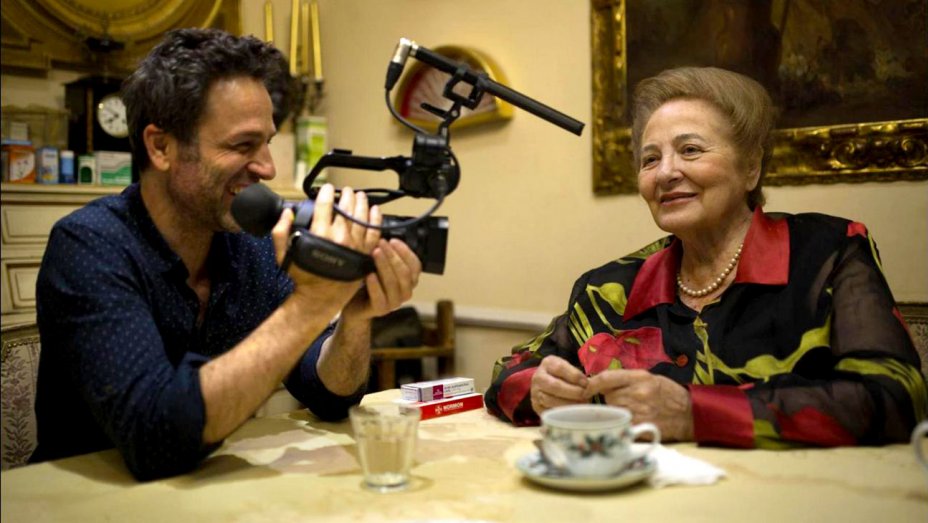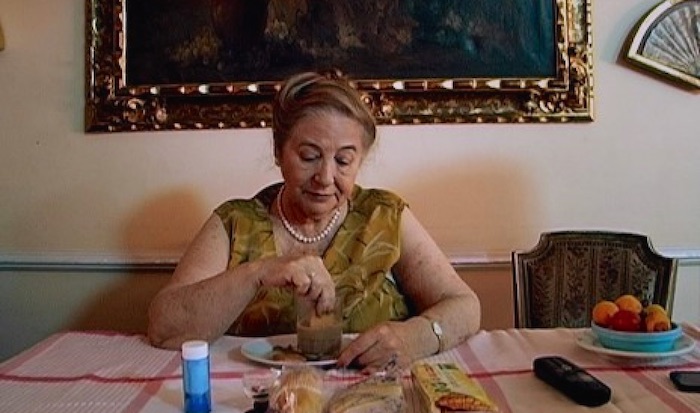LOTS OF KIDS, A MONKEY AND A CASTLE
 Saturday, June 23, 2018 at 7:03AM
Saturday, June 23, 2018 at 7:03AM Featuring: Julita Salmerón, Gustavo Salmerón, Antonio García Cabanes, Ramón García Salmerón, Paloma García Salmerón, David García Salmerón, Ignacio García Salmerón and Julia García Salmerón.
Screenplay: Gustavo Salmerón, Raúl de Torres, Beatriz Montañez.
Director: Gustavo Salmerón.
Screening at LALIFF, Los Angeles on June 23 and June 24.
Rating: 4/5

A Spanish matriarch’s recipe for happiness is examined through her son’s melancholy, bittersweet lens in Lots of Kids, a Monkey and a Castle, a charming study of family dynamics, shifting generational values and the challenge of just plain growing old from actor/director Gustavo Salmerón.
On her wedding day, Julita Salmerón wished for three things from her new life – a vast family, a pet monkey and a traditional dwelling that recalls the majesty of her homeland’s history. In Julita’s eyes, these are symbols of affluence but by the mid 00’s (the film utilises decades of footage, from family photos dating back a century to iPhone coverage), they have come to represent very different things.
Gustavo (a well-known actor in his homeland), his five siblings and their own families have gathered to empty their parent’s castle of its riches before the bank takes possession, the clan having lost much of its wealth in the economic crisis; the monkey is long gone, having turned from family pet into an objectionable pest who literally bit the hand that fed it once too often. As the family struggles with cumbersome relics such as chandeliers and knight’s armour, Julita recalls the moments, memories and dreams, both lived and unfulfilled, that have shaped her life.

As this lovely film unfolds, Julita transforms from the eccentric, feisty Spanish ‘abuela’ who hoards a lifetime of trinkets (from plastic pipes and knitting needles to her grandparents’ vertebra) into a deeply humanistic presence increasingly consumed with her own mortality and legacy. Both very funny (she convinces her family to indulge in a rehearsal for her own wake) and very sweet (she adores her husband, despite a long period without physical intimacy and his contrary views on Spain’s political past), she speaks directly to her son’s camera with the frankness of a septuagenarian with no reason to keep opinions or secrets to herself any longer.
Her circumstances are specific to her situation, but Julita’s sentimentality and desire for a life that has long passed her by has a universality that is instantly relatable. The intimacy of the footage, the forthright insight she conveys and the openness with which she embraces her newfound role as ‘documentary subject’ is wonderfully endearing. By the final frames of Lots of Kids, a Monkey and a Castle, one entirely understands why she is adored, held in awe and quietly tolerated in equal measure.
 Documentary,
Documentary,  Family Film,
Family Film,  Latin Cinema,
Latin Cinema,  Spain
Spain 